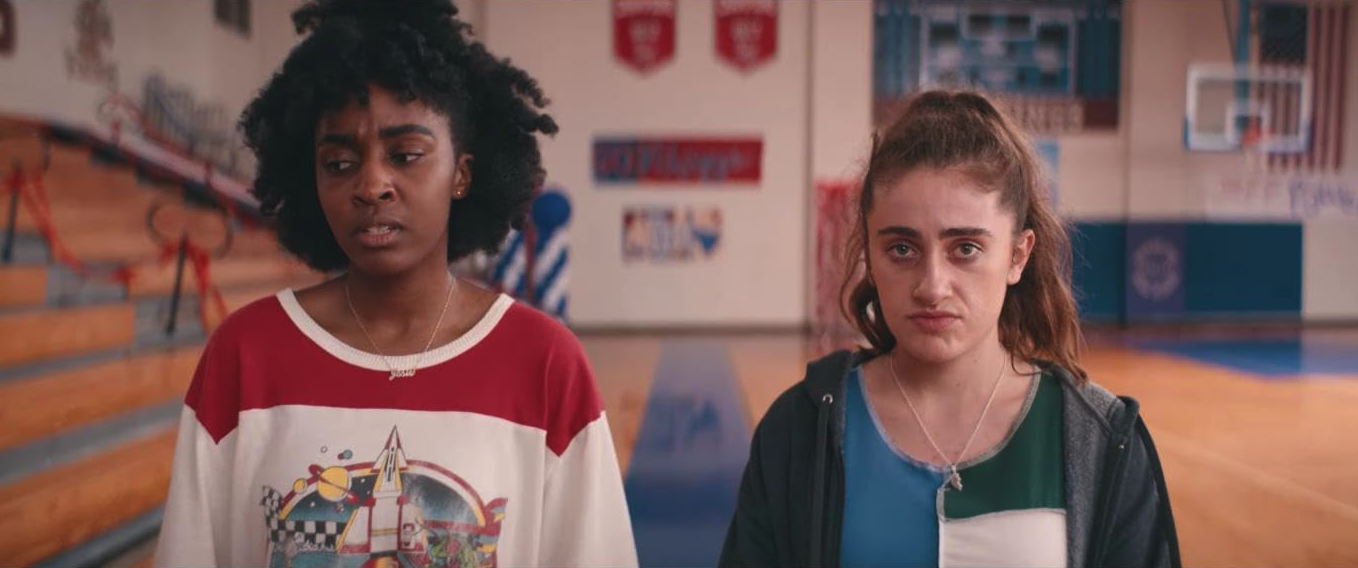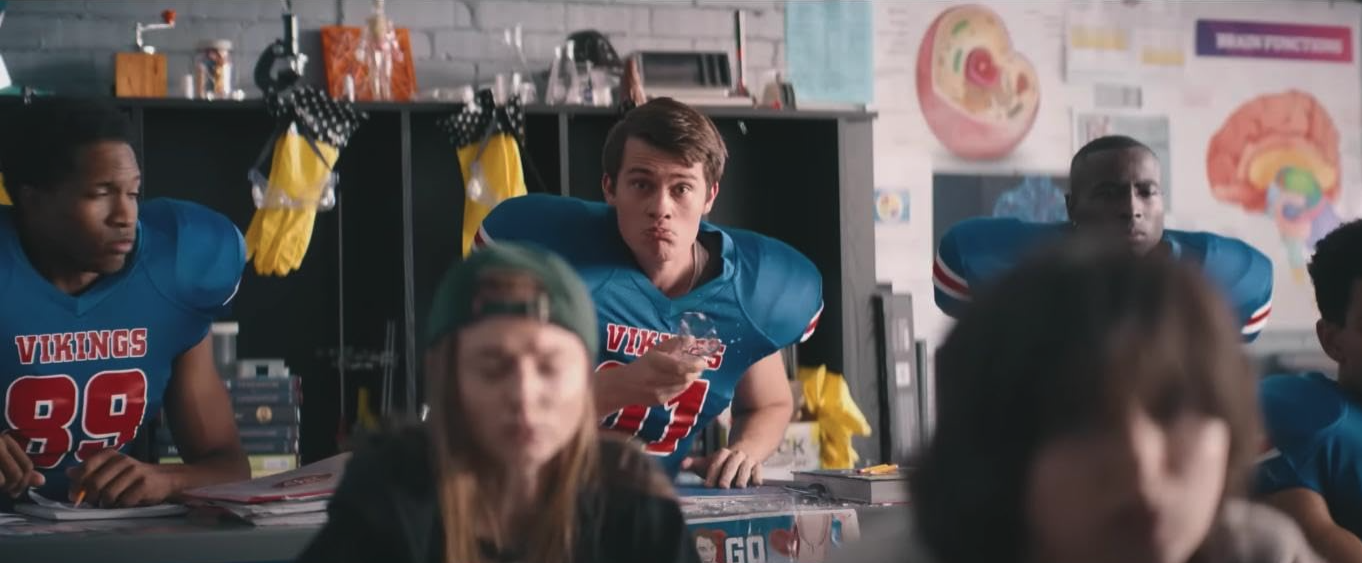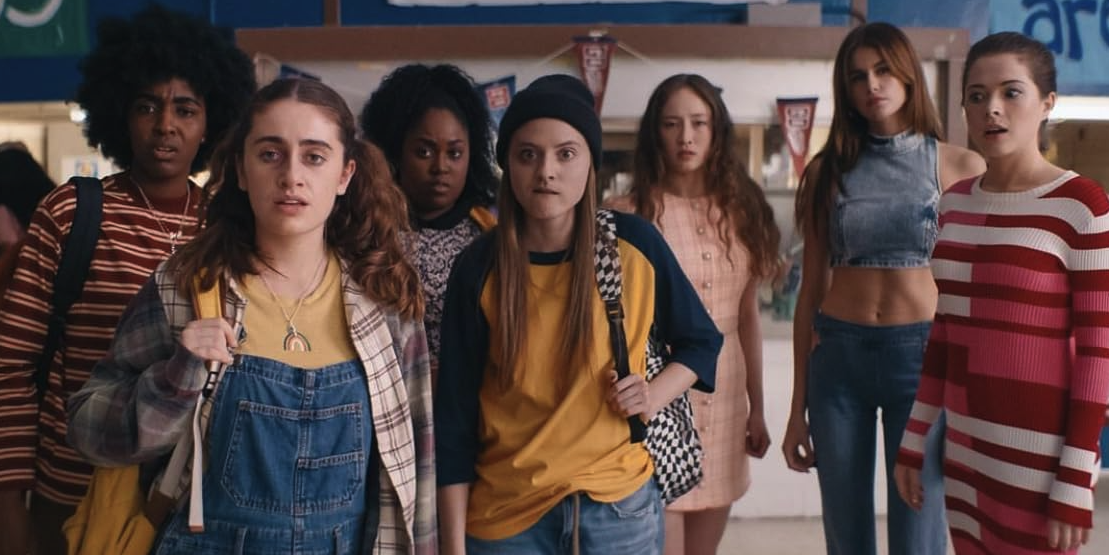By Tanya Fevzi, Third Year, English
After its release in the United States on 25 August, Emma Seligman’s queer comedy Bottoms (2023) finally came to the UK on 3 November. Self-described as ‘a movie about empowering women (the hot ones)’ in its release poster, the film follows self-proclaimed ‘ugly, untalented gays’ Josie (Ayo Edebiri) and PJ (Rachel Sennott) in their quest to get the attention of their crushes – Isobel (Havana Rose Liu) and Brittany (Kaia Gerber).
Starting ‘literally at the bottom’ of their school’s social rankings, the girls decide to start a fight club. They mask their true goal of attracting Isobel and Brittany with instead the ‘lack of female solidarity’ in their school. This attracts a small group of girls who attend the club for different reasons: to find female solidarity, to learn self-defence, or to fight the Huntingtons (their school’s football rivals). Josie and PJ are dissatisfied with their group until Isobel and Brittany join.

There is an unspoken significance of the fight club, given that it provides a safe space where the girls can talk about their struggles. Getting straight into it, PJ asks the girls ‘Who’s been raped?’ and all members of the club raise their hands, bar Mr G (Lynch), their club advisor. Further discussions involve divorce, stalking, assault, and the beauty standard. Keeping the light-hearted nature of the film but still exploring these issues is incredibly beneficial for its audience – its target being young women. Mr G also chimes in, highlighting that men too need therapy.
When its members discover the impure intentions in the creation of the club, Josie and PJ are held accountable and the group falls apart. The club members feel betrayed by the captains’ ‘selfish reasons’ for starting the club, what they thought was a ‘sisterhood’. Isobel, who had engaged romantically with Josie, and Brittany, who had to tell PJ she was straight after a kiss between the two, are also disappointed. Josie and PJ fall out. The feminist community created almost reverses in the school; Mr G gives up on feminism, Isobel gets back with her cheating-captain-of-the-football-team ex-boyfriend Jeff, and there is a shot of a sexist poster on the school board reading “Smile. He could be looking at you.”

When Josie discovers that the Huntingtons are going to murder Jeff with pineapple juice, to which he is allergic, she forces the group together for a final mission. Their plan to prevent this murder kicks off with a distraction – PJ and Hazel (Cruz), a member of the fight club, kiss. The girls then put the self-defence tactics they have learned from each other into action and fight the Huntingtons. They save Jeff and the football team and are finally given credit for their work.
The film is a great contribution to LGBT+ media, and the diverse cast provides representation that is often lacking in teenage films. The comedy of the film is also very humorous, and self-depreciative, and provides an ironic take on homophobia – for example, when PJ and Hazel are kissing, an old man in the audience urges them to stop the “gay shit” because he came to watch ‘man-on-man grappling’ in the football. During this kiss, there is also a discussion on porn, to which Jeff responds, ‘Is porn even real?’

Evidently, Bottoms is an easy watch for all audiences. It tackles serious issues in a gripping and causal setting to which Gen Z viewers, particularly, can relate. It is not filled with misery, as many queer movies are, but celebrates queerness. Its success has been thus rewarded with significantly positive reviews.
What did you think of the film Bottoms?








